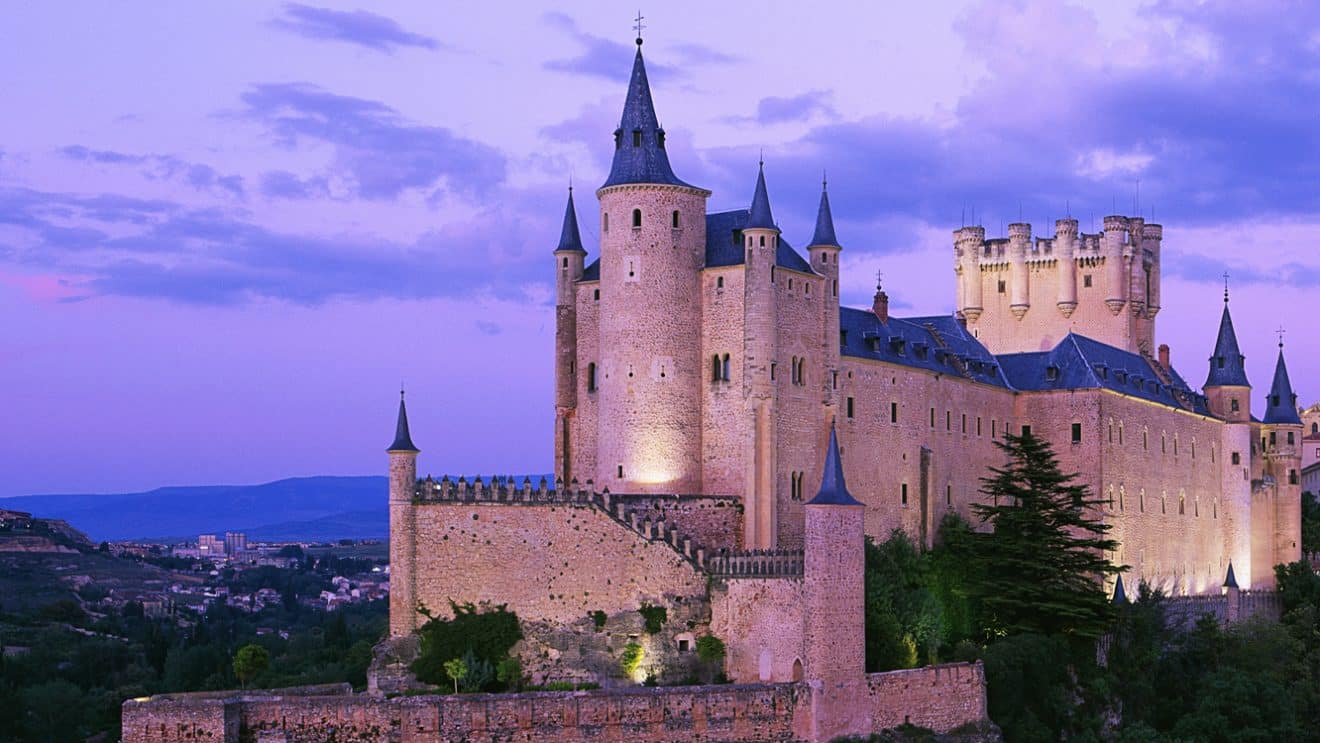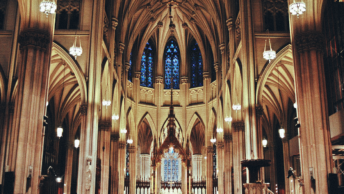Early in the 20th century there was a German Jewish author named Franz Kafka who wrote gripping but disturbing stories of people desperately searching for salvation in a cruel and depressing world. One of these stories is titled The Castle, in which the main character is a land surveyor known by the initial K. While looking for work, he’s summoned to a strange village, which is overlooked by a castle on a high mountain; the villagers act as if the mysterious, unseen residents of the castle are almost divine. K tries to contact the castle to find out if indeed there’s a job for him to do, but telephone conversations with the residents are unclear, and letters from the castle are confusing; he tries to go up to the castle himself, but roads which seem to lead in that direction suddenly turn away, leaving him lost and bewildered. It literally proves impossible to get to the castle; when K asks the villagers for advice on whether he can go up there, he’s told not to— but he’s also told not to leave the village. The novel ends on a note of frustration; K knows that the answer to his search is in the castle, but there’s absolutely no way for him to reach it. This is a major theme of all Franz Kafka’s writings, and of his life itself. The castle stands for God, or happiness, or whatever people need in order to be fulfilled; the character K symbolizes people who are caught “in the twilight zone between salvation and damnation” (Anthony Padovano, The Estranged God, p. 98).
This was Franz Kafka’s tragic and depressing experience of life, but it’s not the Christian understanding. Yes, there are lots of things that don’t make sense. Yes, life is often marked by unnecessary suffering and even tragedy. Yes, God sometimes seems remote and unreachable. However, we believe in an all-loving and all-powerful God Who has a plan of salvation meant to include every one of us. This plan will be fulfilled, with us or without us; our salvation lies in choosing to be part of it. We’re not like characters in one of Kafka’s novels, desperately but unsuccessfully searching for meaning. God shows us the way; His commandments point out the path to travel and help us find our place. By following God’s rules, we’ll be able to fulfill our role in life and find true happiness.
The readings for the Third Sunday of Lent remind us that while God has ordered or arranged all things for our salvation, it’s necessary for us to cooperate with this plan; we have our part to play. The Book of Exodus (20:1-17) lists the Ten Commandments: God’s guidelines on how to avoid hurting ourselves and others. Certain actions are self-destructive; we can misuse our free will to such an extent that we ruin our chance for happiness, both in this world and in the next. Because He loves us, God wants us to avoid such a disaster, and His rules and teachings, preserved by the Church, are designed to help us in this regard. This isn’t always readily apparent; the commandments might seem unnecessarily restrictive, or an infringement on our freedom. However, as St. Paul (1 Cor 1:22-25) reminds us, God’s so-called “foolishness” is far wiser than human standards. Living by His teachings doesn’t always make sense from a worldly point of view, but it’s the only true source of happiness.
As the Gospel of John (2:13-25) shows, God’s plan will prevail. After Jesus cleansed the Temple by evicting the money-changers and merchants, His enemies were more determined than ever to get rid of Him; they thought they’d be able to overcome Him once and for all by killing Him. However, as Jesus Himself noted, the destruction of the temple of His human body would make possible the miracle of the resurrection; the harder His enemies worked against Him, the greater would be God’s victory. Opposition to Christ didn’t thwart God’s plan, but actually helped bring it about.
Many of us have had the experience of driving in the midst of a very thick fog, or in a heavy rainstorm or snowstorm; we had to proceed slowly and carefully, for it was difficult to see exactly where we were and where we were going. We were grateful and relieved when we were able to see landmarks or signs or other points of reference that helped us travel safely and in the right direction. This is a good analogy or comparison for life; it can be confusing, bewildering, and even dangerous if we turn the wrong way—and I’m sure there are many people in today’s world who feel like a character in one of Franz Kafka’s novels, caught in a web of confusion and doubt and frustration, unable to see a way out. It doesn’t have to be that way. God’s teachings and commandments are our landmarks, intended to guide us along the proper path—and Lent is a time for us to pause, check our spiritual maps, and get our bearings. This simply means reflecting on where we’re at and where we’re going. Is God at the center of our lives? Do we value our faith as much as we should? Are we trying to play our part in the Lord’s plan? Do we set aside some time each day just for God? Are we taking advantage of the special opportunities the Church gives us during Lent to read and learn, to sacrifice and grow, to think and pray?
In spite of all the wars and tragedies occurring in the world, in spite of the numerous assaults on human life and dignity, in spite of the seemingly-endless decline in morality and civilization, our heavenly Father’s saving plan is unfolding—and each one of us is called to be part of it. We all have a role to play; we all have a path to follow—and God’s commandments point the way. We can prepare for future happiness with the Lord by using this present opportunity to practice obedience, humility, and trust.








